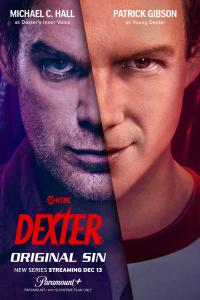Torrent details for "Kraftwerk - Star Mark Greatest Hits (2008) {FLAC} vtwin88cube" Log in to bookmark
Controls:
Language:
 English
EnglishTotal Size:
957.93 MB
Info Hash:
21f1d13c71da5044e91403923ccd330c6bf1dcaf
Added By:
Added:
04-04-2019 18:06
Views:
1,881
Health:

Seeds:
2
Leechers:
1
Completed:
116
Thanks for rating :
oneanight

 (5),
(5),
oneanight
Kraftwerk
Star Mark
Greatest Hits (2008)
Tracklist:
CD1
01.The Robots
02.The Man-Machine
03.Radioactivity
04.Neon Lights
05.Computer Love
06.The Model
07.Sex Object
08.The Telephone Call
09.Home Computer
10.Spacelab
11.Metropolis
12.Trans-Europe Express
13.Showroom Dummies
14.Autobahn (Live)
CD2
01.Expo 2000
02.Aero Dynamik
03.Tour De France Etape 1
04.Tour De France Etape 2
05.Tour De France
06.Musique Non Stop
07.Computer World
08.Pocket Calculator
09.Numbers
10.Boing Boom Tschak
11.Electric Cafe
12.Vitamin
13.Electro Kardiogramm
14.La Forme
15.Planet Of Vision (Live)
Thanks 4 Seeding!
Cheers!
88
Наздраве!
Živjeli!
Na zdraví!
Skål!
Proost!
Prost!
Kippis!
À votre santé!
Στην υγειά σας!
Ke aloha!
Mianta!
Saluti!
चीयर्स!
Egészségére!
Jubel!
Twoje zdrowie!
Noroc!
Ура!
Slàinte!
Na zdravie!
Привітання!
ไชโย!
Star Mark
Greatest Hits (2008)
FLAC LOSSLESS 16bit-44kHzQuote:
allmusic.com...
During the mid-'70s, Germany's Kraftwerk established the sonic blueprint followed by an extraordinary number of artists in the decades to come. From the British new romantic movement to hip-hop to techno, the group's self-described "robot pop" -- hypnotically minimal, obliquely rhythmic music performed solely via electronic means -- resonates in virtually every new development to impact the contemporary pop scene of the late-20th century, and as pioneers of the electronic music form, their enduring influence cannot be overstated. Kraftwerk emerged from the same German experimental music community of the late '60s that spawned Can and Tangerine Dream; primary members Florian Schneider and Ralf Hütter first met as classical music students at the Dusseldorf Conservatory, originally teaming in the group Organisation and issuing a 1970 album, Tone Float, in the U.K. Schneider and Hütter soon disbanded Organisation, re-christening themselves Kraftwerk (German for "power station"), beginning work on their own studio (later dubbed Kling Klang), and immersing their music in the fledgling world of minimalist electronics; their 1971 debut, titled simply Kraftwerk 1, offered a hint of their unique aesthetic in its earliest form, already implementing innovations including Schneider's attempts at designing homemade rhythm machines.
Tracklist:
CD1
01.The Robots
02.The Man-Machine
03.Radioactivity
04.Neon Lights
05.Computer Love
06.The Model
07.Sex Object
08.The Telephone Call
09.Home Computer
10.Spacelab
11.Metropolis
12.Trans-Europe Express
13.Showroom Dummies
14.Autobahn (Live)
CD2
01.Expo 2000
02.Aero Dynamik
03.Tour De France Etape 1
04.Tour De France Etape 2
05.Tour De France
06.Musique Non Stop
07.Computer World
08.Pocket Calculator
09.Numbers
10.Boing Boom Tschak
11.Electric Cafe
12.Vitamin
13.Electro Kardiogramm
14.La Forme
15.Planet Of Vision (Live)
Thanks 4 Seeding!
Cheers!
88
Наздраве!
Živjeli!
Na zdraví!
Skål!
Proost!
Prost!
Kippis!
À votre santé!
Στην υγειά σας!
Ke aloha!
Mianta!
Saluti!
चीयर्स!
Egészségére!
Jubel!
Twoje zdrowie!
Noroc!
Ура!
Slàinte!
Na zdravie!
Привітання!
ไชโย!











































